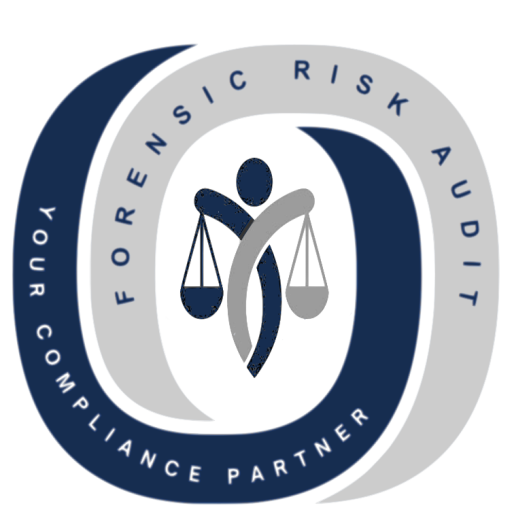Original article by John Rotondi, Port Washington NY, 516 944 8880 and re-posted with his permission.
On August 28, 2017, the SEC issued “Investor Alert: Public Companies Making ICO-Related Claims” (https://www.sec.gov/oiea/investor-alerts-and-bulletins/ia_icorelatedclaims). Fraudsters behind public companies are claiming that those companies are associated with, or engaging in, an initial coin offering (ICO). These false claims are being made so as to manipulate the company’s stock in a “pump and dump” scheme. Fraudsters follow current news closely, and will use these events in their pitch. For example, a popular investment scheme in the 1960s was mining for gold in the sea. SEALAB, an experimental underwater habitat developed by the U.S. Navy, was popular at that time, and helped cement the scam. In recent years, companies purportedly involved with virtual currency, and legal marijuana, as well as Ebola and Zika cures, have lured investors. Now, ICOs are all the rage. The fundraising from these offerings have accelerated, like a gold rush, pulling in more than $1 billion in 2017, and a total of more than $2 billion since the first one by Mastercoin in mid-2013. Such coin offerings can be tracked at https://www.tokendata.io.
In an ICO, a start-up company uses blockchain technology, i.e., a decentralized and transparent way in which transactions are maintained on an electronic ledger, to create a new digital coin (a “token”) that it sells in exchange for, most often, cryptocurrencies, such as Bitcoin or Ethereum, or, less often, fiat money, like U.S. dollars. The money raised is used by the start-up to fund its project, while the tokens are designed to be used to purchase the project’s product or service. The tokens can also be traded in a secondary market. In some respects, ICOs are similar to initial public offerings. However, unlike IPOs, ICOs don’t typically register with a securities regulator before they are sold, so there’s no prospectus or offering document with comprehensive disclosures available to investors. Another difference is that IPOs trade on a regulated stock exchange; whereas, the tokens from an ICO trade on unregulated markets.
While some of these ICOs may be legitimate, others are not. Regulators appear particularly concerned about outright fraud, inadequate disclosure (ICOs typically issue meager “white papers” prior to an offering), money laundering, and security vulnerabilities, i.e., a lack of adequate cybersecurity controls. (With certain ICOs, investors have insisted that projects use multi-signature wallets to enhance security.) Many questions concerning their applicability to securities, and other laws, remain unanswered. To what extent are ICOs maintaining detailed transaction and Know Your Customer (KYC) records, in order to combat money laundering? To what extent do these transactions fall under state money transmission laws? Are the tokens securities? If not, are they commodities? Under what jurisdiction is it being sold? Are ICO sponsors trying to circumvent securities regulations through jurisdictional arbitrage? Are they incorporating offshore and prohibiting U.S. participation by blocking Internet Protocol (IP) addresses? Is this sufficient to preclude them from falling under U.S. securities law? Are U.S. residents skirting this control by utilizing international Virtual Private Network (VPN) connections, which will show they have foreign internet addresses, in order to buy the ICO? ICO sponsors who have created unique tokens have argued, unsurprisingly, that they’re not securities. They claim that the tokens are designed to be used for paying for the software they’re producing. However, these functions are not mutually exclusive; a token can be both a form of payment and a security.
While it appears ICOs have been in a regulatory grey zone, governments are starting to take note, issuing recent announcements indicating that certain token offerings may be securities, and, if so, need to be regulated as such. On August 1, 2017, the Monetary Authority of Singapore (MAS) published its regulatory position on the offer of digital tokens (http://www.mas.gov.sg/News-and-Publications/Media-Releases/2017/MAS-clarifies-regulatory-position-on-the-offer-of-digital-tokens-in-Singapore.aspx). On August 24, 2017 the Canadian Securities Administrators (CSA) released a Staff Notice on token offerings (http://www.osc.gov.on.ca/en/SecuritiesLaw_csa_20170824_cryptocurrency-offerings.htm). These were both preceded by the SEC’s “Investor Bulletin: Initial Coin Offerings” (https://www.sec.gov/oiea/investor-alerts-and-bulletins/ib_coinofferings) and “Report of Investigation Pursuant to Section 21(a) of the Securities Exchange Act of 1934” (https://www.sec.gov/news/press-release/2017-131), released on July 25, 2017. The SEC concluded in its report that the sale of tokens in 2016 by The DAO (a “virtual” decentralized autonomous organization existing on a distributed ledger) violated U.S. federal securities laws. However, the SEC declined to take any action against The DAO. Instead, it used the case as an opportunity to publicize its views regarding these offerings, and their applicability to U.S. federal securities laws.
The Investor Bulletin does not state that all tokens sold in ICOs will be considered securities. Instead, the SEC takes the position that “facts and circumstances” will determine when tokens sold in an ICO are securities subject to U.S. federal securities laws. The SEC has stated that these ICOs “may provide fair and lawful investment opportunities.” It’s also possible that they may not. The SEC has taken the position that the tokens are “securities” under both the Securities Act of 1933 and the Securities Exchange Act of 1934, Both definitions include the term “investment contract,” which has been defined by the U.S. Supreme Court, in the 1946 case of SEC v. W.J. Howey Co., as an investment of money in a common enterprise with a reasonable expectation of profits to be derived from the entrepreneurial efforts of others. Lower courts have determined that such items as bullion, chinchillas, citrus groves, condominium units, diamonds, minks, pay phones, real estate, and warehouse receipts are all securities when sold pursuant to all aspects of the “Howey Test.” If the tokens are securities, then Section 5 of the Securities Act of 1933 requires that their offer and sale be registered, unless there’s an exemption, such as a limited offering to accredited investors.
The tokens that are created in an ICO can be freely traded and, therefore, their prices can trade above or below the ICO price. As such, the SEC has determined that these secondary virtual currency trading platforms also require registration, just like a stock exchange would, unless there’s an exemption they can rely on. Currently, however, none of the major virtual currency exchanges, including Coinbase, Gemini, and Poloniex, are currently registered. Because these exchanges may not be registered securities exchanges or alternative trading systems regulated under the U.S. federal securities laws, investors purchasing and selling virtual currencies may not have the same protections that would apply in the case of stocks listed on an exchange.
The SEC has stated that ICO sponsors and other participants should consider whether their business model results in an entity that needs to be registered as an investment company under the Investment Company Act of 1940. Also, if anyone provided advice about an investment in the token, then they could be considered an investment advisor.
While a particular ICO’s application to federal securities law remains uncertain, when companies misrepresent public announcements
regarding ICOs in order to manipulate the price of the company’s stock, then it appears they are violating the law. As such, the SEC recently used its authority under Section 12(k) of the Securities Exchange Act of 1934 to suspend, for ten business days, the trading in certain issuers; namely, First Bitcoin Capital Corp. (BITCF), CIAO Group (CIAU), Strategic Global (STBV), and Sunshine Capital (SCNP). First Bitcoin was trading for a nickel at the beginning of the year, and then traded as high as $3.15 before being suspended for concerns about the accuracy and adequacy of its publicly available information, including the value of its assets and its capital structure. The SEC also said “arrivederci” to CIAO Group. It was trading at $0.02 at the beginning of the year and traded as high as $0.50 before being suspended for inaccurate and incomplete information about its purported business plans in the telecommunications industry, as well as plans for an ICO. Strategic Global was trading at less than a penny and rose to as high as $0.14 before it was suspended over questions about the accuracy of its press releases, including one about a planned ICO. Sunshine Capital also had inaccurate press releases about the liquidity and value of the company’s asset – a cryptocurrency known as DIBCOINS. Each of these issuers is now designated on OTCMarkets as being “Caveat Emptor” (“Buyer Beware”), and has been branded with a skull and crossbones, as have bottles of poison.
The SEC cautions investors about putting money in a stock that was the subject of a trading suspension, since its one warning sign of possible stock fraud. As to possible ICO-related fraud, the SEC asks investors to look out for public companies claiming that their ICO is “SEC-compliant” without further explanation and/or they purport to raise capital through an ICO or earn revenue through ICO-related business. Investors should be aware that investing in an ICO may limit their recovery in the event of fraud or token theft. Third-party wallet servicers, payment processors, and virtual currency trading venues that play important roles in the use of coin offerings may be located overseas and/or be operating illegally. Before investing in an ICO, investors should inquire about whether the virtual tokens are securities and whether those selling them registered the offering with the SEC. They should ask what the money raised will be used for and what rights the token provides to them. The ICO sponsor should have a clear and detailed business plan that’s available to investors. Also, investors should ask about the details of how and when they can get their money back. If the ICO sponsor acknowledges that the token is a security, then the investor should make sure that the investment professionals and firms making the offering, or advising them, are appropriately licensed and registered, respectively. Investors should ask whether the blockchain is open and public, whether the code has been published, and whether there has been an independent cybersecurity audit. Unfortunately, virtual currency exchanges and other entities holding tokens may be at risk of technical glitches, malware, or hacks. As such, the tokens may be stolen. Most importantly, investors should be skeptical, as it’s relatively easy for anyone to make an ICO offering, and its related project, look impressive, even though it’s really a fraud .
Regulators, and other law enforcement officials, could encounter challenges when investigating ICOs, including the inability to trace money. Traditional financial institutions, such as banks, aren’t involved with ICOs. Also, it may be time-consuming, or impossible, to obtain information from overseas. There’s no central repository detailing the users conducting these transactions, forcing regulators to rely on various other sources to obtain the information. Finally, it’s difficult for law enforcement to freeze investor funds when those funds are in virtual currencies. Virtual currency wallets are encrypted and unlike money held in a bank, virtual tokens may not be held by a third-party custodian.

